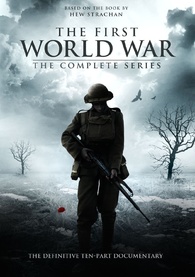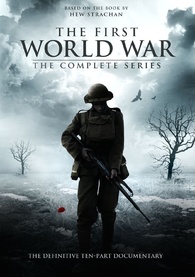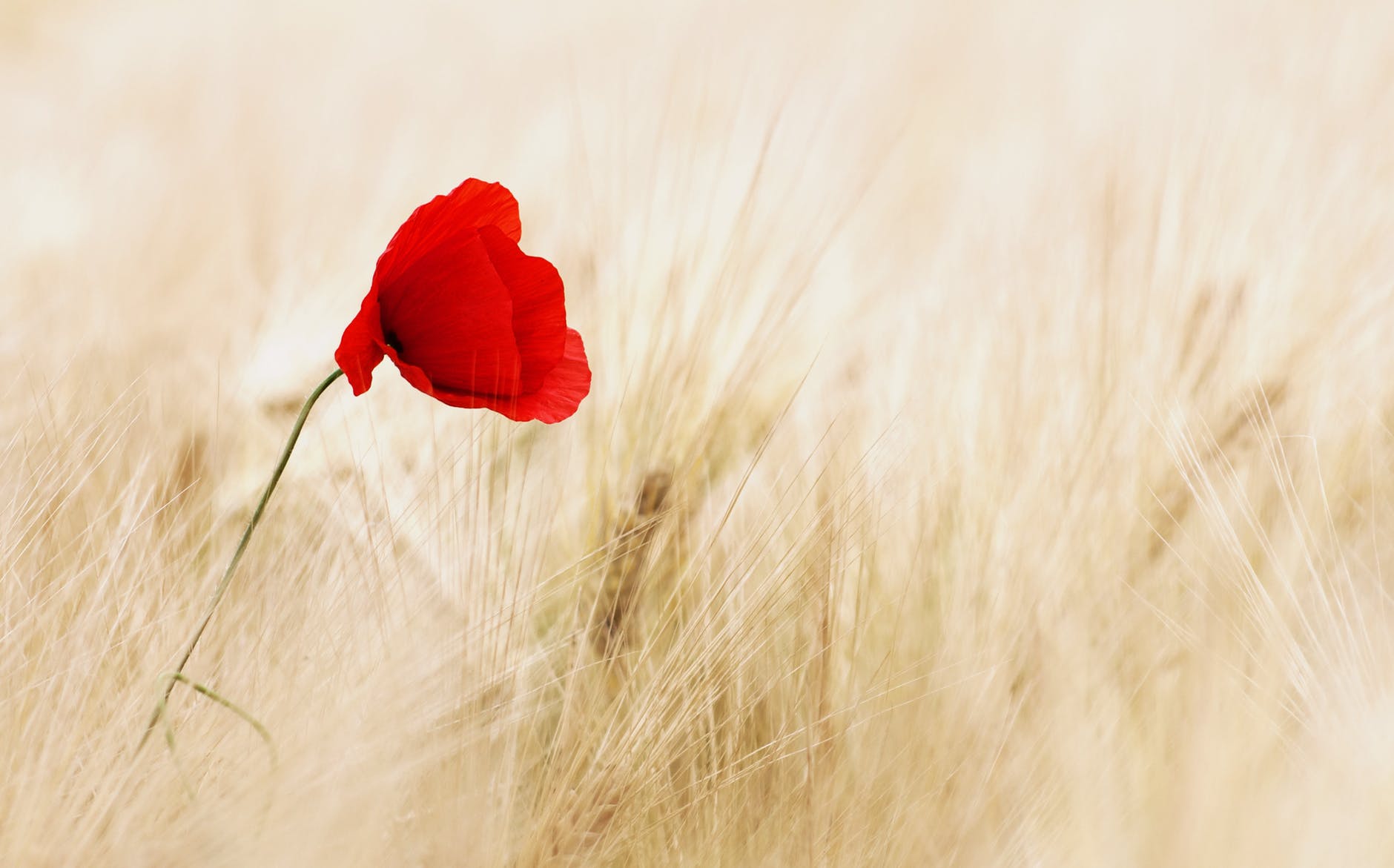
In September of 2003, Britain’s Channel 4 TV network began airing The First World War, a 10-part series based on historian Hew Strachan’s eponymous book about the cataclysmic conflict that broke out in the summer of 1914 and ended on the “11th hour, of the 11th day, of the 11th month” in 1918. Produced and narrated by Jonathan Lewis (The Boer War, Stalin), the 500-minutes-long documentary is an engrossing overview of World War I that explodes many of the clichés and myths about the conflict that shaped the 20th Century and whose repercussions echo well into the 21st.
The series’ writing credits include Strachan and various historical figures from whose memoirs and other writings much of the narrative is drawn, including Karen Blixen (Out of Africa), Vera Brittain, Winston Churchill, Rudolf Hess (who, after the war, would be infamous as Hitler’s Deputy Fuhrer), Edward Grey, Georges Clemenceau, David Lloyd George, and Siegfried Sassoon.
The First World War was also directed by Marcus Kiggell, Simon Rockell, Ben Steele, Corina Sturmer, and Emma Wallace, each of whom directed two 50-minute-long episodes.
Per the series’ descriptive blurb on the Amazon listing for the reissued 2014 Entertainment One three-DVD set:
The popular view of the First World War is dominated by cliché. Young soldiers were led to ghastly deaths in muddy wastes on the Western Front by incompetent generals for reasons that were seemingly futile. And although clichés are not necessarily lies, they are, at best, a selective view of the truth.
On the centenary of the start of this terrible conflict, this special edition ten-part series offers a stunning account of the war, presenting new insights into one of the defining events of modern history, and, for the first time ever, a truly global vision of the conflict.

The First World War is divided into 10 parts and covers the major events of the conflict that toppled three great European empires, sparked the Russian Revolution, marked the United States’ entry into the club of world powers, and paved the way for the great calamities of a Second World War, the U.S.-Soviet conflict known as the Cold War, and the never-ending strife in the Middle East.
The 10 parts are:
- To Arms 1914 An 18-year-old terrorist secretly aided by Serbian intelligence assassinates Austria-Hungary’s Archduke Franz Ferdinand and his wife at Sarajevo, and a cold war between two European military blocs – the Entente and the Central Powers – turns hot as a regional crisis in the Balkans becomes a global conflict.
- Under the Eagle 1914 – 1915 Germany invades Belgium and France in accordance to the Schlieffen Plan, but the German Army’s harsh occupation methods – including the mass murder of civilians – helps stiffen Allied resolve to win the war.
- Global War 1914 – 1916 Germany struck against the mighty British Empire at sea from the North Atlantic to the Pacific, and waged war on land in Africa in a bid to force the British to divert forces away from the vital spaces of the Western Front.
- Jihad 1914 – 1916 The Ottoman Empire, already weakened by the loss of its Balkan territories in the late 19th Century, throws its lot with Germany and Austria-Hungary, a move that proves disastrous for both sides.
- Shackled to a Corpse 1914 – 1916 In the Eastern Front, Generals Hindenburg and Ludendorff beat back a Russian invasion of East Prussia, and the war in Eastern Europe becomes a contest pitting Teutons vs. Slavs in an all-out battle that will weaken the Romanov dynasty’s precarious hold on power in a war-weary Russia.
- Breaking the Deadlock 1915 – 1917 In the West, both sides look for strategies and weapons to break the stalemate created by trench warfare. Germany seeks to bleed France white at Verdun, while the Allies attempt to break German defenses at the Battle of the Somme.
- Blockade 1916 – 1917 The British Royal Navy imposes a blockade on Kaiser Wilhelm II’s Kaiserreich, the German High Seas Fleet and its British counterpart duke it out in the indecisive Battle of Jutland, and Germany’s leaders decide to use U-boats in a counterblockade of Great Britain. But unrestricted submarine warfare draws the U.S. into the war.
- Revolution 1917 The war’s seeming endlessness saps at the morale in various armies, especially the French in the West and Russia’s ill-equipped and ineptly led hosts in the East. In the vast Russian Empire, war-weariness and social unrest give a Marxist revolutionary who calls himself “Lenin” an opportunity to bring down the Tsarist regime, and Germany eagerly gives him safe passage across her territory to sow the seeds of revolution and knock Russia out of the war.
- Germany’s Last Gamble 1918 With Russia teetering on the edge of collapse and Lenin seeking an immediate end to hostilities, Berlin shifts vast armies from the East and transfers them to the West, where Ludendorff and his generals plan a last great offensive in March. One million German troops are massed for a huge blow on French and British armies before Gen. Pershing’s American Expeditionary Force can make a difference on the battlefield.
- War Without End The Allies’ defeat of the Ludendorff offensive and the combined effects of British, French, and U.S. counteroffensives in early fall of 1918 force the German high command to realize the war is lost. Revolution in German cities and battlefield defeats in the West force Kaiser Wilhelm II to abdicate. On November 11, 1918, the guns go silent, and for the first time since August 1914, all is quiet on the Western Front. But the Armistice and the Treaty of Versailles that ends the “war to end all wars” is only a momentary respite, and the grievances caused by the First World War will fester for nearly a generation, until Adolf Hitler promises to make Germany great again and unleashes a Second World War.

My Take
As a viewer who is interested in military history, I tend to focus primarily on World War II and other conflicts that are closer to our current times and give short shrift to earlier wars. Only after watching Ken Burns’ now-classic 1990 The Civil War did I start breaking away from the “World War II, all the time” routine of watching military-themed documentaries.
As far as World War I is concerned, I wasn’t too keen on it until I started watching The Adventures of Young Indiana Jones: Volume Two – The War Years DVD box set almost 13 years ago. Produced by Lucasfilm Ltd. and released by CBS DVD and Paramount, this multi-disc set not only has seven “movies” that were re-edited from the original 1990s TV series The Young Indiana Jones Chronicles, but also offers viewers a treasure trove of short documentaries that cover many aspects of the “Great War” of 1914-1918.
Since then, I’ve bought several books and TV documentaries about the war, including the 1964 CBS series World War I, which features a narration by actor Robert Ryan and music by Morton Gould.
The 2003 counterpart, The First World War, was made for British TV and, though it has fewer episodes than the CBS series, is based on a scholarly book by a renowned Scottish-born historian named Hew Strachan. It mixes contemporary (2003) location footage of such places as Sarajevo (where the assassination of Austria-Hungary’s Archduke Franz Ferdinand and his wife Sophie triggered the coming of the conflict) and Verdun with black-and-white footage of the leaders, the soldiers, the navies, and the battlefields of World War I.
As noted above, the series examines the war through eyes that look beyond the popular narrative that World War I was just a four-year-slog through muddy trenches and not much else. In the Western Front, trench warfare was the defining hallmark of “the Great War,” but in other fronts the war was unimaginably mobile, especially in Africa and the Middle East. In the latter theater, Col. T.E. Lawrence (best known to us as Lawrence of Arabia) fought a hit-and-run guerrilla war against the Turks as one of the leaders of the seminal Arab revolt. In the Eastern front, too, great armies marched across vast expanses of Central and Eastern Europe, without the deadlock seen in France and in Flanders, where most of the trench-centric battles were fought.
The First World War may not be as comprehensive for grognards who are well-versed in the “war to end all wars,” but it is a perfect documentary for viewers who are more familiar with the conflict’s bigger and bloodier sequel, World War II. It is well-written, nicely shot and edited, and ably narrated by series producer Jonathan Lewis.

Comments
9 responses to “TV Documentary Review: ‘The First World War’ (2003)”
This sounds very interesting. Putting it on my “to watch” list. Now that I have peace and quiet again during the day (till someone gets sick and we’re back to remote learning) I can catch up on my viewing!
LikeLiked by 1 person
I thought it was worth the investment. It balances out the U.S.-centric “The Great War” doc from The American Experience series, that’s for sure.
LikeLiked by 1 person
It looks like it’s available to stream from Amazon Prime. Watching Mulan again today so I can write a review, so maybe tomorrow
LikeLiked by 1 person
Awesome. It is definitely a good series to watch at least once.
LikeLike
Reblogged this on Utopia, you are standing in it!.
LikeLiked by 1 person
Thank you! I am glad you enjoyed it.
LikeLike
Another excellent WWI documentary is The Great War and the Shaping of the 20th Century. I remember watching when it aired on PBS In the late 90s. It’s not completely focused on military history, but also looks at the social impact of the war. I’ve tried to track it down, but it’s hard to find these days. https://en.wikipedia.org/wiki/The_Great_War_and_the_Shaping_of_the_20th_Century
LikeLiked by 1 person
[…] about. Last night I fell asleep while watching – or trying to watch, anyway – an episode of The First World War out in the Common Room. The last thing I remember doing last night was watching the start of […]
LikeLike
[…] sleepy yet, so I went to my room and watched, with a bit more interest, the episode Blockade from the British documentary The First World War (2003). I watched that all the way to the end, even though I’m hazy about the last 10 minutes […]
LikeLike